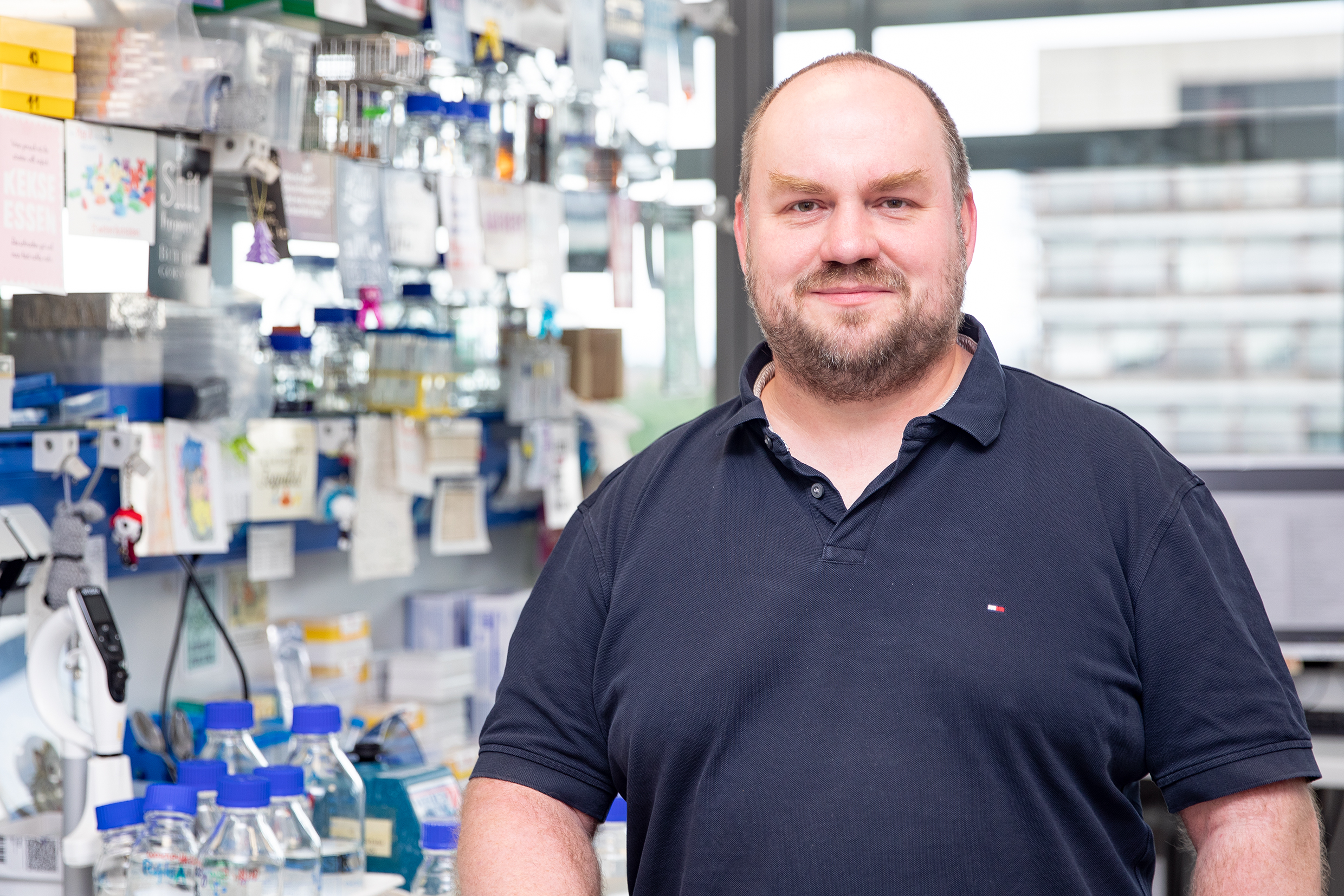Garbers would like to network the previous research foci of glycobiochemistry and diabetology more closely together with cytokine research.

Professor Garbers, a biochemist and licensed pharmacist, has his eye on cytokines in particular. Copyright: Karin Kaiser/MHH
Since 1 July, Clinical Biochemistry has a new director. Christoph Garbers has moved from Otto von Guericke University Magdeburg to the MHH to take over the professorship for biochemistry and the management of the institute. Born in Lüneburg, he previously held a professorship for Experimental Pathology for five years. However, he did his doctorate and habilitation in biochemistry, which is why the path to Hanover was "a logical step" for him. He was particularly attracted to the MHH because of the research foci "Infection and Immunity" and "Transplantation and Regeneration", to which his own field of research fits ideally: cytokines. Cytokines are messenger substances that are formed during a reaction of the immune system and that can activate certain defence cells. They influence inflammatory processes, bacterial proliferation and the development of cancer.
Advancing inflammation research
In his research, Professor Garbers is primarily concerned with the role of cytokines in chronic inflammatory diseases. "Actually, these small proteins are supposed to help the body fight the trigger of an inflammatory reaction - such as an infection," explains the biochemist. "However, especially in chronic inflammations, the cytokines don't help at all, but on the contrary are involved in the permanent maintenance of the inflammatory reaction." Professor Garbers wants to prevent this overreaction and is investigating on a molecular level how cytokines and their binding sites interact with each other. "I use this knowledge to produce novel proteins that interfere with specific cytokine signalling pathways as selectively as possible and with as few side effects as possible, thus helping to treat inflammatory diseases," he says. He says it is particularly fascinating for him to be able to link genuine basic biochemical research with translational application. "I originally studied pharmacy, and the development of substances that can ideally actually be used on patients one day has accompanied me my entire professional life," he notes. A designer protein he has been involved in developing for more than ten years is currently undergoing clinical trials for the treatment of chronic inflammatory bowel diseases and has recently successfully completed two phase II trials. He is currently developing several designer proteins in order to be able to intervene therapeutically in other diseases as well.
The biochemist and licensed pharmacist takes over the Institute from his predecessor, Professor Dr. Rita Gerardy-Schahn, with a research focus on glycobiochemistry and diabetology. Together with cytokine research, the new director wants to unite all three topics under the umbrella of inflammation research. "My task will be to network the two previous areas even better and together form a high-performance team in research and teaching," emphasises Professor Garbers. The Institute is currently very well positioned in both research and teaching, he says, and he would like to maintain and further expand this. "My goal is to successfully participate in the planned research networks and excellence cluster initiatives of the MHH and, in the long term, to acquire my own research network that reflects the strengths of the Institute."
Text: Kirsten Pötzke